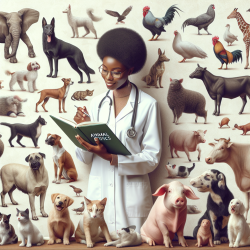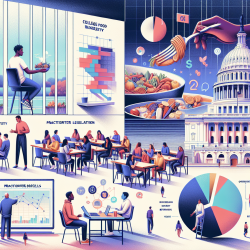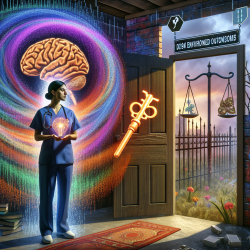Introduction
The role of veterinarians in industrial food animal production is pivotal, especially in the context of applied animal ethics. The research paper titled Applied Animal Ethics in Industrial Food Animal Production: Exploring the Role of the Veterinarian highlights the ethical challenges faced by veterinarians in these settings. As professionals often caught between the interests of farmers and the welfare of animals, veterinarians are uniquely positioned to advocate for ethical practices that enhance animal welfare while maintaining production efficiency.
Understanding the Ethical Landscape
The paper outlines several ethical dilemmas that veterinarians face, such as the moral 'lock-in' that occurs within the industry. This refers to the normalization of certain practices that, while efficient, may not align with evolving ethical standards regarding animal welfare. For instance, the use of gestation stalls in pig farming is a practice designed to enhance production efficiency but raises significant welfare concerns due to the restriction of natural behaviors.
Veterinarians as Ethical Advocates
Veterinarians are encouraged to take a leadership role in addressing these ethical challenges. By engaging in discussions with producers and other stakeholders, veterinarians can help identify innovative solutions that balance animal welfare with production needs. This involves not only adhering to local legislation but also thinking beyond the current industry standards to support sustainable and ethical practices.
Implementing Research Outcomes
The research suggests several strategies for veterinarians to enhance their practice through applied animal ethics:
- Advocacy and Leadership: Veterinarians should actively participate in policy discussions and advocate for changes that improve animal welfare.
- Education and Training: Continuous education on animal welfare science and ethics is crucial for veterinarians to stay informed and effectively advocate for ethical practices.
- Collaboration: Working with multidisciplinary teams, including animal scientists and ethicists, can provide a broader perspective on addressing welfare issues.
Encouraging Further Research
While the paper provides a comprehensive overview of the current ethical challenges, it also highlights the need for further research. Veterinarians are encouraged to engage in research that explores new technologies and practices that can enhance animal welfare without compromising production efficiency. This includes investigating alternative housing systems, such as group housing for sows, which can mitigate some welfare concerns associated with gestation stalls.
Conclusion
Veterinarians play a critical role in bridging the gap between animal welfare and industrial food animal production. By implementing the research outcomes and engaging in continuous learning and advocacy, veterinarians can drive meaningful change in the industry. To explore the detailed findings and recommendations, please refer to the original research paper: Applied Animal Ethics in Industrial Food Animal Production: Exploring the Role of the Veterinarian.










